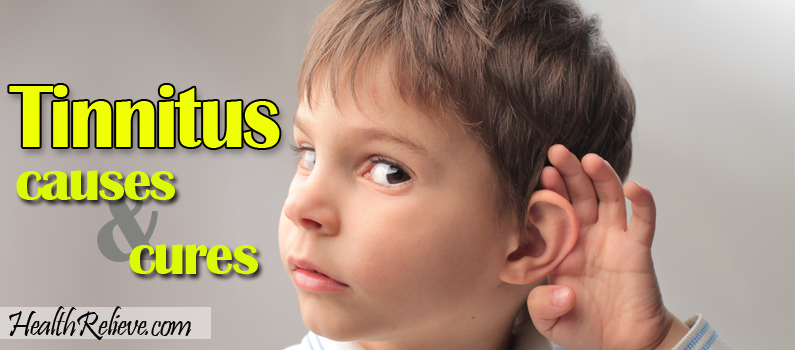Tinnitus – Causes And Cures
Tinnitus involves persistent ringing, buzzing, clicking, or throbbing sounds in the ears. It can be caused by numerous factors, such as age. It is typical for people to have hearing problems as they grow older. So if you are already around sixty years of age, you may start to develop hearing loss, known as presbycusis.
CAUSES
Nonetheless, your tinnitus may also be caused by exposure to loud noises. If you are usually exposed to loud music, firearms, and heavy machineries for long periods of time, you may have permanent tinnitus. If you got tinnitus due to short term exposure to loud noises, such as when you attended a concert, do not worry because you will eventually regain normal hearing.
Another common cause of tinnitus is earwax blockage. If you do not clean your ears regularly, earwax can accumulate and cause eardrum irritation or hearing loss. This can lead to tinnitus. So even if earwax is beneficial since it protects your ear canal by preventing bacteria buildup, you should still make it a habit to clean your ears the right way.
You can also have tinnitus if your ear bones stiffen. This condition is known as otosclerosis. It occurs when your bone grows abnormally and may be hereditary. Other factors that can cause tinnitus include TMJ or temperomandibular joint disorders, neck injuries, head injuries, Meniere’s disease, and acoustic neuroma.
Although rare, tinnitus may also be caused by blood vessel disorders. You may have pulsatile tinnitus if you have neck and head tumors, atherosclerosis, turbulent blood flow, high blood pressure, or capillary malformation. Certain medications can cause tinnitus as well. These include diuretics, antibiotics, cancer medications, aspirin, quinine medications, and antidepressants.
CURES & TREATMENTS
When it comes to treatment, your doctor may prescribe earwax removal, medication change, or blood vessel treatment. Your symptoms may be reduced if impacted earwax is removed from your ears. You may also find some relief when underlying vascular conditions are addressed. If medication is the cause of your tinnitus, quitting it may improve your condition.
Moreover, you can use white noise to help suppress the irritating sounds you hear in your ears. Your doctor may recommend hearing aids, white noise machines, and masking devices. Although drugs cannot really cure tinnitus, your doctor may still prescribe tricyclic antidepressants and alprazolam to help reduce your symptoms.
If all else fails, you can resort to alternative therapies and treatments, such as hypnosis, acupuncture, B vitamins, zinc supplements, ginkgo biloba, and neuromodulation, to improve your condition. Of course, you should also adapt a better lifestyle. As much as possible, you should avoid being exposed to irritants and learn how to manage stress.




